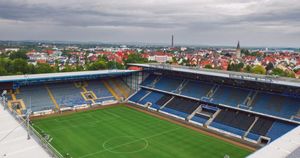2025 is shaping up to be an exciting year for home design, with several innovative trends and concepts taking center stage. From outdoor spaces transforming our living environments to smart appliances ushering in new levels of convenience, the future of home design promises to be both functional and aesthetically pleasing.
One of the most significant trends is the enhanced focus on outdoor spaces. According to Anna Ellis, writing for Euro Weekly News, gardens and terraces are no longer just ornamental; they are now integral extensions of our living areas. Homeowners are embracing the outdoors with practical designs such as vertical gardens and plant-filled terraces. Outdoor furniture crafted from natural materials is growing increasingly popular, with chalets and single-family homes taking full advantage of their outdoor spaces by incorporating dining areas and relaxation zones. Urban vegetable patches are also becoming common, allowing residents to cultivate their own fresh produce right at home.
For apartment dwellers, the challenge has often been how to maximize limited space. Ellis notes the trend of converting small terraces and balconies or patios to green havens, featuring planters, modular furniture, and even automatic irrigation systems.
But outdoor excellence doesn’t stop at the plants; the way homes are constructed is also changing. Architectural facades are now widely utilizing natural materials like stone, wood, brick, and ceramics. These materials serve both functional and visual purposes, creating inviting pathways and patios, all the way to furniture. Vertical gardens and climbing plants not only beautify but also create seamless transitions between indoor and outdoor areas. Stone-clad walls and hanging planters breathe life and texture to facades.
An important component of outdoor design is the durability of garden furniture, as homes are now being planned for year-round enjoyment, especially with weather-resistant pieces made from wrought iron and recycled wood. Such durability ensures style and comfort is not compromised.
Parallel to these trends, technology is making significant strides. Samsung is poised to influence home innovation with its array of AI-enabled appliances showcased at the Kitchen & Bath Industry Show (KBIS) 2025. These include the Bespoke AI appliances, like the Bespoke 4-Door Flex™ Refrigerator with AI Family Hub™+ and the Dacor Induction Range.
Samsung’s focus at KBIS has been on creating connected, user-friendly devices to streamline household chores. The LCD screens on these appliances act as hubs to interact with various smart home devices, showcasing the potential of hyper-connectivity and artificial intelligence to simplify daily routines. According to Taehwan Hwang, EVP and Head of Sales and Marketing Team of Digital Appliances at Samsung Electronics, these innovations lead to personalized experiences suited to individual needs.
The induction range particularly stands out with its powerful 4.3 kW cooking capabilities, allowing quick and efficient meal preparation without sacrificing energy efficiency, as it is ENERGY STAR® certified.
Further emphasizing smart home integration, Samsung is leveraging AI technology to anticipate users' daily needs. Simple interface and voice controls via Bixby make interacting with these devices seamless and intuitive.
Meanwhile, the integration of sustainable practices and materials continues to influence not just the design and functionality of indoor settings but also the outdoor landscapes of homes. This growing trend of practicality paired with sustainable aesthetics is reshaping how we envision our living environments.
Take, for example, the German construction company Viebrockhaus, which has been steadily using advanced battery technology from LG for solar-plus-storage systems. These homes being energy-efficient and self-sustaining are paving the way for more integrated, modern living spaces.
The company emphasizes regular maintenance for its installations, highlighting the importance of safety and reliability. Recent news stories have indicated potential risks associated with battery systems, but Viebrockhaus reiterates its commitment to quality and functionality.
Innovation is the underlying spirit driving these trends, with technology enabling more personalized and efficient experiences within our homes. With the marriage of nature, sustainability, and tech, the homes of 2025 are likely to reflect values toward environmental responsibility and comfort.
So as we move forward, whether you’re redesigning your home or starting from scratch, it’s clear: the new age of home living is about blending nature with innovation, making every space work harder and greener for its inhabitants.



